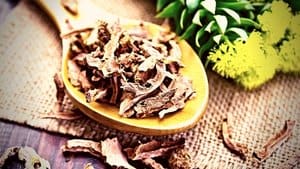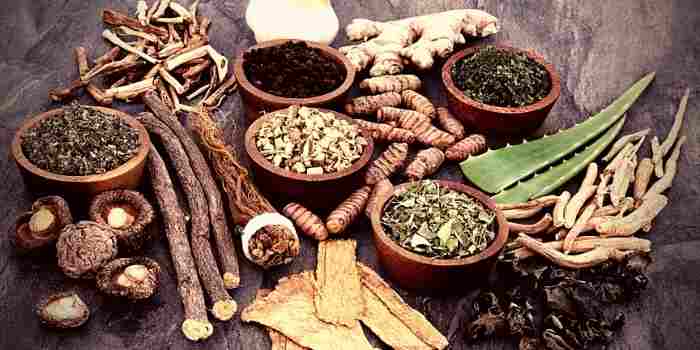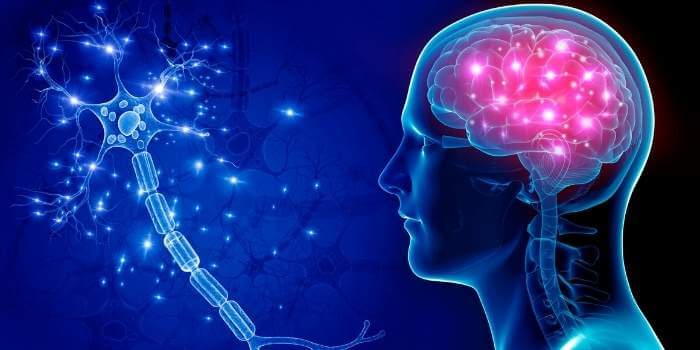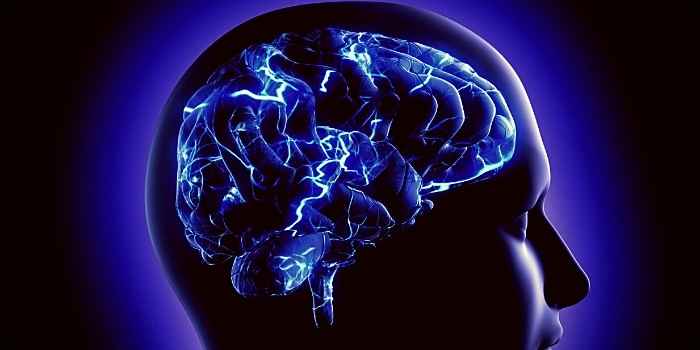
We have all faced stress, yet we want to solve this quickly.
When it comes to managing stress, it’s better the look at a holistic aspect. Adaptogens supplements are reaching a place where they might support stress resistance.
Some adaptogenic herbs include Ashwagandha and Rhodiola Rosea. They can reduce anxiety, improve sleep quality, and improve mood. We will cover all the details in this article
Adaptogens, also known as adaptogens, are a group of herbs that increase the body’s ability to adapt to stress, therefore helping the body to cope with stress and enhance resilience
Key Points
- Adaptogens are believed to reduce stress hormones by normalizing the production of hormones.
- Plus, adaptogens can directly impact your mood, stress level, and anxiety. Adrenaline is unique in the fact that it acts as both a hormone and neurotransmitter. Sprinting, capturing, and hunting animals in ancient times required adrenaline throughout evolution. Yet, stress increases adrenaline and cortisol production, which boosts cognitive function and physical performance in the short term. However, chronic stress might be problematic in modern society.
- We can learn about meditation and other nootropics for positive advantages to your brain health and stress level combined with adaptogen herbs.
Why Should We Use Adaptogens?
Adaptogens’ unique herbs and mood properties. For example, eating a good amount of nutrition can help increase mood.
However, adaptogens can directly impact your mood, stress, and anxiety.
Everyone wants to become calmer, yet it isn’t easy. All human history is worked on human behavioral, physical, mental, and even spiritual aspects.
For stress reduction, people are doing meditation for history. Taoists, buddish, and other philosophical systems are involved in that regard.
Meditation is one of the oldest practices of all. It has been used for centuries to treat stress, anxiety, pain, and many other ailments. These days, meditation has become very popular globally, with many people doing it regularly or even as a habit.
We are LUCKY
Yes. Because we have received this kind of tool thanks to improving technologies and science about herbs, supplements, and nutrition.
Why are we lucky?
- You can mix adaptogens easily. In regular life, you can’t consume these things without extracts.
- You can learn about the knowledge of hormones such as dopamine, serotonin, GABA, Oxytocin, Norepinefrin, NMDA, and BDNF. They are all related to brain function, stress, and mood. Without the proper knowledge, we can’t know how these brain chemicals affect our mood.
- We can learn about meditation and other nootropics for positive advantages to your brain health and stress level.
- You can reach the knowledge of ketosis, fasting, and other science-based diets, which improve your mitochondrial level and brain functions.
As we can see, we have a lot of reasons we are lucky.
In the previous post, I explained how to identify the hormones that play a role in stress, mood, and anxiety. I also mentioned some of them, including dopamine, serotonin, and GABA.
What are the advantages of adaptogens?

Adaptogens are believed to reduce stress hormones by normalizing the production of hormones. Adaptogens have additional benefits beyond this simple action.
- Normalization and maintenance of immune functions Many adaptogens help regulate the immune system’s functioning. They can help increase the body’s ability to fight infections and decrease overactive immune reactions in allergies or autoimmune diseases.
- Enhance athletic performance Adaptogens like Rhodiola or ginseng were used in the Olympics by athletes. They are not prohibited because they don’t have side effects. Recent research on adaptogens has shown that they can reduce fatigue, improve cardiovascular function, and increase muscle strength.
- Enhance mood and mental performance. Adaptogens can improve concentration by lowering cortisol levels (also known as the stress hormone). They also support cognitive function and memory over time.
- Maintain cardiovascular health Adaptogens also protect the cardiovascular system. Many of these adaptogens help regulate blood pressure and protect the heart. The balancing effect of cholesterol is also essential, but only moderately.
- Balance blood sugar levels. Some adaptogens regulate blood sugar levels and reduce insulin resistance in diabetes. On the other hand, they are great allies for hypoglycemia (when the blood sugar is too low).
- Increase physical energy Adaptogens increase energy and concentration in the workplace. They do this by increasing energy and concentration at work, not as stimulants that draw energy from the body’s reserves. Adaptogens can help you sleep better under stress and have more energy throughout the day.
- Balance the hormone production Both men and women can benefit from adaptogens in their reproductive health. Adaptogens can increase fertility in men as well as women. They can also be beneficial from the perspective of alleviating pre-menstrual symptoms. They can also balance irregular menstrual cycles and reduce symptoms associated with menopause.
- Additional benefits Some adaptogens protect the liver against chemical toxicity while others aid vision, digestion, or respiratory function. Adaptogens are also considered to be antioxidant substances in large parts.
Do adaptogens help with weight loss?
Stress is the leading cause of gaining weight. Stress also affects your neurotransmitter behavior like serotonin, affecting your food intake. For example, if you have a high-stress level and low serotonin, you eat more carbohydrates. That way, adaptogens can be helpful in that regard.
What are the characteristics of adaptogens?

Officially, adaptogens are substances with three characteristics.
- Adaptogens do not cause toxicity. It is possible to take adaptogens for a longer time safely.
- An adaptogen causes a nonspecific biological response that improves the body’s ability to resist stress, including chemical, biological, and physical.
- Adaptogens have a normalizing effect. Adaptogens can help balance the system in any direction that stressors may cause imbalances.
All adaptogens share these characteristics, but each plant has its unique properties.
Adaptogenic efficacy is not dependent on chemical groups in plants. Although active ingredients of adaptogens can vary greatly, they all aid the body to function more efficiently under stress.
You can try different adaptogens to see which one is working better. For example, ginseng might work for you, Rhodiola won’t work, or vice versa.
There are no magical things.
Our anxiety forces us to be one magical herb and tool that will immediately help us reach enlightenment and peaceful states.
However, as we deep dive into human behavior, we get more surprised at how our body health is related to brain health.
For example, science shows that the gut-brain connection is critical for mental health.
Melatonin hormone is also an undervalued hormone that helps to increase growth hormones, dopamine, serotonin, and mood.
Even Taoist mentioned that melatonin is converted at night DMT, then it’ll increase high spiritual level knowledge.
Yoga, Taoism, and More
There is tons of information you can get without paying money. In the past, people had no luck.
They can learn about science as well as spiritual information from Taoism.
Yet, as science improve, we discover new tools such as cognitive behavioral therapy, emotional freedom techniques, and hypnosis.
We have a good strategy for well-being and life.
We can convey and implement that information for a better life.
“Adaptogens can be helpful.
In this regard, adaptogens are great for handling stress.
Adaptogenic substances are their ability to increase resistance to stress and other environmental factors. Here are some advantages of adaptogens:
- Boost the body’s resistance against biologically, chemically, and physically harmful factors
- Adaptogens counteract the effects of stress or tension. The stress response can alter the brain hippocampus area unhealthy way.
- Traumatic stress also causes an overactive fight-or-flight response and adrenaline. Our bodies can’t feel good. That much stress lead to problems
This definition shows that few biological regulators can increase adaptability and prevent environmental damage.”
There are no plants that can increase our organism’s resistance. Researchers may add or subtract from some plants.
A non-exhaustive list of possible candidates includes:
- Panax Ginseng is more commonly known as red ginseng.
- Eleutherococcus, Siberian ginseng
- Rhodiola;
- Astragalus;
- Schisandra;
- Ashwagandha;
- Maca
- Guarana.
Stress activates Process
Stress activates the
- Hypothalamus
- Pituitary
- Adrenocortical
Acute stress is short-lived and does not cause any long-term effects on the body. On the other hand, chronic stress lasts long and hurts the mind and body.
The most common stressors are:
- Toxins, pesticides, heavy metals
- Anger, fear, anxiety, depression, and commitments
- Allergens, obligations or demands of the socio-environment, etc.
- Intolerances and allergies
- Bacteria, viruses, parasites, molds, and fungi
The effects of these variables can be psychological and physiological.
Adaptogenic plants have been used to help people in the traditional sense and promote mental and physical well-being.
Vagus Nerve and Stress

In the modern world, people are constantly under pressure. However, we forget that the vagus nerve is the primary nerve responsible for our psychological well-being.
Many people struggle to get a handle on their emotions and understand their actions and their thoughts. They often make poor choices and don’t know why.
Emotions are powerful, and the quality of communication can impact what you say and how well people receive it. It’s easy to be distracted by things outside of yourself and miss important information.
The vagus nerve is critically important when it comes to stress and emotions. Reducing stress with adaptogens can help the vagus nerve and improve its function.
Vagues nerve can help serotonin production to stimulate and lower stress levels. (source)
Cold shower immersion has been shown to reduce stress by decreasing the heart rate and increasing cerebral blood flow. If you want to stimulate the vagus nerve, a cold shower can help.
Diaphragmatic breathing: Diaphragmatic breathing is a technique used to help you breathe deeply or relax the body and mind. Like a cold shower, it will help calm your body and stimulant the vagus nerve.
Humans are complex creatures. The vagus nerve is majorly important when it comes to stress and emotions. It controls our autonomic nervous system and is responsible for controlling our immune system.
- Stressful situations are okay, as well as don’t become chronic. For managing stress, we can use some relaxation techniques and mindfulness things to deal with stress.
- Chronic stress lead to oxidative stress and lower our vitality. Additionally, chronic stress cause headaches, suppressed testosterone and an overactive sympathetic nervous system.
How adaptogens help with the HPA axis

It is widely known that stress and anxiety are harmful to our health. Everything that happens in our lives directly impacts our health in today’s age.
The HPA axis (hypothalamic pituitary adrenal) is responsible for regulating how we react to stress and anxiety. This can be affected by the amount of food we consume, the type of food we consume, the types of foods we choose to eat, and what we get up.
Adaptogens are compounds that modulate the functions of the HPA axis. (source)
The HPA axis is responsible for regulating how we react to stress, and this is something that can be affected by our diet, lifestyle habits, and environment.
Adaptogens are designed to help you regulate your stress levels and allow you to function better.
Go back to adaptogens. Which one do I need to use?
Depending on your goals, let’s see which one might be helpful.
My favorite is using Rhodiola Rosea plus Tyrosine for mood, stress, and dopamine production.
Yet, if you want to increase more, you can add B complex and vitamin C to absorb the tyrosine in the brain better.
Further?
If you have low to mid-level anxiety or don’t have any issues with caffeine, you are lucky. Yet, you may find that coffee makes you feel anxious and shaky.
You could have lower levels of the calming chemical GABA in your brain because caffeine inhibits GABA production.(source)
Some adaptogenic herbs include Ashwagandha and Rhodiola Rosea. Adaptogens help the body to adapt to stress with no adverse side effects. They can reduce anxiety, improve sleep quality, and improve mood. When it comes to managing stress, it’s better the look at a holistic aspect.
What is the most potent adaptogen?

Depending on the combination and usage, you can make a good strategy. As we talked about, combining L-tyrosine and Rhodiola Rosea is a most potent cognitive and adaptogenic effect than others.
Caffine, Rhodiola plus Tyrosine

Caffeine helps your increase dopamine sensitivity. Yet, tyrosine is the primary ingredient in dopamine production.
Combining this will helps increase euphoria feels.
Adding Rhodiola Rosea helps you with stress, ADHD, and another neurotransmitter.
If you’re using caffeine, you should be aware that it is a powerful stimulant. It increases dopamine production in the brain and increases motivation. You can combine L-tyrosine and Rhodiola Rosea for a better strategy for nootropic effects.
Rhodiola Rosea
Rhodiola Rosea undervalued adaptogens which are effective for stress reduction and mood benefits.
Rhodiola Rosea is a plant in the Rosaceae family. This plant is known for its energizing and anti-fatigue qualities.
It has been used as an herbal medicine for centuries. Still, recently it has gained significant attention as a practical stress reduction effect.
Rhodiola lower stress level and help burnout symptoms coming from high stress. (source)
The studies showed that Rhodiola Rosea extract helps with mild depression individuals. (source)
Dosage
The daily dose of Rhodiola Rosea is 150-200 mg.
This mimics the ratio found in Rhodiola Rosea root. Look for an extract with a 3:1 ratio of rosavin to salidrosides.
Over 1,000 mg per day appears to provide no additional benefit.
Can you take adaptogens an emty stomach?
You can take adaptogens on an empty stomach for better absorption if you can tolerate them. For example, taking Rhodiola Rosea with tyrosine on an empty stomach might get fast absorption.
Can you take adaptogens at night?
Some adaptogens have more stimulant effects than others. If it’s the case, you should take it in the morning or afternoon. Some adaptogens have calming properties, such as Licorice root might be better to take morning. Rhodiola Rosea is the best working in the morning or afternoon because of AMPK activation, which leads to increased energy.
AMPK regulates both protein synthesis and breakdown pathways. AMPK
has a vital role in skeletal muscle homeostasis. It’s activated by conditions
of energy stress, including intermittent fasting and exercise.
Related: Why is Dry Fasting the Best Detoxification Method?
What happens if you take too many adaptogens?
Some kind of adaptogens has a side effect if you take large doses. Ginseng might cause side effects, sleepiness, insomnia even extreme heart beat. Others have slightly different side effects, such as stomach cramps and nausea.
Do adaptogens need to be cycled?
Adaptogens are a class of herbs that help the body adapt to various external conditions. However, some adaptogens need to be cycled because their effectiveness might be lower as time passes. For example, Rhodiola Rosea’s effect might be low after 3. months later. The same applies to ginseng. So, it’s best to cycle the adaptogens for three months. That way, you have more sensitivity and more benefits.
How long does it take Rhodiola Rosea to work?
Depending on your situation, it’ll start to work for some people within three days! However, it might start days two weeks after and then increase the effect at the end of the month.
Is Rhodiola Rosea suitable for erectile dysfunction?
Yes. Rhodiola Rosea helps you increase Nitric oxide production, which improves blood follow and exercise capacity. Rhodiola Rosea also helps you lower your pornography addiction, the leading cause of erectile dysfunction, via the stimulation reward center and dopamine.
Most men addictive to pornography because porn stimulates high dopamine secretion and
We have the ultimate guide on how to beat erectile dysfunction.
Related: Take the Stress Out Of Erectile Dysfunction
Do adaptogens help the prostate?
Saw palmetto is such as adaptogen’s properties that might support men’s prostate health. The prostate is affected by toxins and chemicals, so using an antioxidant-rich adaptogen can help this aspect too.
Can Rhodiola Rosea cause serotonin syndrome?
If you are using psychiatric drugs, combining with Rhodiola Rosea might increase serotonin levels and cause serotonin syndrome. Rhodiola Rosea alone is safe and might not cause serotonin syndrome unless you take all bottles once.
Is Rhodiola Rosea addictive?
No, Rhodiola Rosea doesn’t have addictive properties, and there is no study showing it’s addictive. Rhodiola Rosea even helps you get over addictive behavior and support you by increasing your brain’s reward system.
What is standardized Rhodiola Rosea?
The dosage inside the supplement is the same for all of the pills. That way, you can understand what kind of dosage is taking in your supplement, and you will know what dosage is best working for you!
Can you take ashwagandha root and Rhodiola Rosea together?
Yes, you can. However, if you are a beginner, start with one and add another. Slowly increase adaptogens, and you will see what kind of different effect. Rhodiola Rosea and Ashwagandha are different and affect an individual.
is rhodiola rosea the same as ginseng
Ginseng lowers your stress, such as Rhodiola Rosea. Yet, anxiety, depression, and erectile dysfunction are different aspects. Depending on the dosage, if you have depression, Rhodiola Rosea might be more helpful than ginseng. Yet, ginseng is a good antioxidant and has blood sugar lowering effect. Also, ginseng is excellent for women’s libido and increases woman’s sexual desire. Most women get more benefits when using quality red ginseng, especially the sexual side.
Can you take Rhodiola Rosea and caffeine together?
Yes. Combining caffeine and tyrosine is the best thing to improve brain functions and cognition. However, if you have a high anxiety level, a lower caffeine intake might be good for overall health.
is green tea an adaptogen
No, green tea isn’t an adaptogen. Yet, it has an L-theanine adaptogen that increases alpha brain waves and stress reduction effect. Green tea also has unique antioxidants that might help lower your stress and improve brain functions.
Is turmeric a adaptogen?
NO, turmeric isn’t an adaptogen. Yet, turmeric increase dopamine production via lowering inflammation in your brain. Also, science shows that turmeric repair brain cells and increases new brain cells via brain-derived neurotic factor. This behavior also improves mood, lowers stress, and improves your body’s overall function.
is passionflower an adaptogen
Passionflower is a herb originally from the South American rainforest. It has several vital functions, such as anti-inflammatory, anti-depressant, and anti-inflammatory. Yet, it’s not an adaptogen like a Rhodiola Rosea or ginseng. However, it’s great for a mood like them.
Final Thoughts
Adaptogens are herbs that have been used for thousands of years in Ayurvedic medicine.
Adaptogens are believed to reduce stress hormones by normalizing the production of hormones. Some adaptogens regulate blood sugar levels and reduce insulin resistance in diabetes. Adaptogens like Rhodiola or ginseng were used in the Olympics by athletes.
You can use these adaptogens strategy to improve the overall level. However, we suggest daily habits for stress reduction and increased life quality. These positive habits included:
- Daily 10 to 20 min meditation
- Gratitude habits
- Kindness to others ( It doesn’t mean you can accept everything)
- Brazilian Jiu-jitsu ( You will learn self-defense while improving body shape as well as a social connection)
- Qigong
These are the habits that can improve overall life quality and well-being.